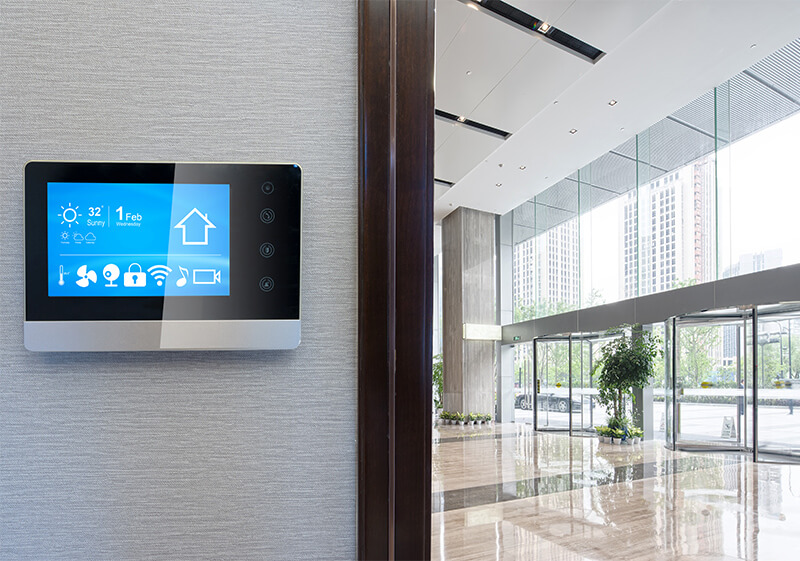This Year’s HVAC Trends Explained
When it comes to HVAC, the goal is to achieve maximum comfort and increase energy efficiency levels with smart and eco-friendly technology. Each year, building and commercial property owners are seeing their HVAC needs evolve. That’s why it’s important to stay up to date with the latest HVAC trends to ensure you are getting the very best service.
5 HVAC Trends Expected to Heat Up in 2020
If you’re curious about the trends that are shaping HVAC services this year, then you’ll want to see what we’ve discovered. Before you schedule your next HVAC installation or maintenance, read on to learn more about the following trends.
1. Smart Thermostats
Unlike traditional thermostats, which measure temperature only, smart thermostats also regulate humidity and energy consumption of your commercial space. The thermostat monitors the consumption of your systems to automate a fixed heating and cooling climate control schedule. Additionally, some smart thermostats will offer suggestions on how to maintain these minimum energy levels.
Another advantage of installing a smart thermostat for your commercial space is usability. With an application on your mobile device, you can access and make adjustments to your system from the comfort of your couch.
2. More Focus on Indoor Air Quality
Today, HVAC is not just about heating and cooling. More commercial property owners are becoming conscious of their indoor air quality. This is likely due to the increase of breathing-related health cases.
This trend makes high-quality HVAC installation a must-have, especially for healthcare facilities. The filters in your system will help trap dirt, debris, and airborne pathogens to ensure a clean air supply in your indoor space. But, keep in mind, the filters should be replaced regularly to increase their effectiveness.
3. Inverter Technology
Newer HVAC systems come with inverters to control the speed of air conditioner compressor motors for continuous and more efficient temperature regulation. This technology enables a variable frequency for more efficient control, hence maximum energy savings for your facility.
Currently, inverter technology is only available for high-end models. However, you can expect it to be incorporated into standard commercial models pretty soon to cater for budget consumers.
4. Eco-Friendly Refrigerants
The refrigerant is a vital part of the HVAC system as it helps to absorb heat from the indoor space. Thus, lowering the air temperature. However, the chlorofluorocarbons component in older refrigerants isn’t friendly to the environment. When released into the environment, these components damage the ozone layer, causing the greenhouse effect.
Fortunately, the EPA is phasing out all hazardous refrigerants this year in place of environmentally friendly options.
5. Cloud-Connected HVAC Systems
For any smart facility, HVAC data is a fundamental aspect, given the fact that it accounts for almost half of a building’s energy consumption. It’s also essential for occupant comfort. This makes it crucial to connect your HVAC system to a cloud-based data center. It will allow you to run your smart facility more efficiently. As a result, your facility can reduce energy consumption, yielding substantial savings in the long run.
Get Professional Commercial HVAC Services
As technology continues to change so do HVAC trends and services. Smart, environmentally-friendly technological advancements have greatly influenced the current HVAC trends. The latest trends above will help take the industry to the next level.
The Severn Group is a top commercial HVAC contractor throughout Maryland and the Washington, D.C. area. We specialize in mechanical and plumbing construction. So, whether you’re looking for state-of-the-art HVAC installation or regular maintenance for your commercial space, contact us today for top-notch services.

